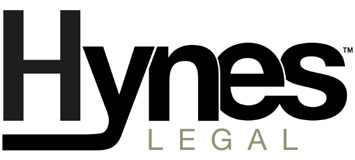Does a body corporate have to include all submitted motions on a general meeting agenda?
We get this question at least once a month. The answer has always been ‘Yes’.
And why wouldn’t it be? The Modules requires that if a motion is submitted by an owner before the end of the body corporate’s financial year, then it must go on the AGM agenda (s. 69 Standard Module). Otherwise, if a motion is submitted at any other time it must simply go on the next general meeting agenda. Section 111A of the Body Corporate and Community Management Act 1997 then provides protection for the body corporate from liability if there is anything defamatory in that submitted material.
The question always arises in relation to a novella from an owner. It could be a long-winded statement (as opposed to an actual motion). It could be a series of them. It could be 20 separate motions all dealing with the same issues in different ways – all of which were defeated at last year’s AGM or ruled out of order, and which will happen again this year.
Can anyone guess where this newsletter is going?
In a very recent decision, an adjudicator said (paraphrased):
‘I regard the submission of five “motions” comprising 10 typed pages of material as nothing more than an attempt to distribute propaganda at the expense of the Body Corporate. I do not regard the material as ‘motions’ in the sense that the word is used in the body corporate legislation. They were not requiring the body corporate to make any decision on any particular matter. The information contained therein was nothing more than opinions on certain body corporate matters, which he wanted to make known to all owners, although at the expense of the Body Corporate, rather than himself, by wording it as “motions” and calling it as such.
In my view, this is an inappropriate use of body corporate resources. As such, I do not regard the refusal of the Body Corporate to place the information in the agenda and voting paper for the AGM as contrary to law.
Further, although the committee is obliged to act reasonably (section 100(5) Act) there is no legislative obligation for a committee to include every request or “motion” submitted to it by an owner on an agenda for a committee meeting.’
So what does this mean in practice?
An owner should not use general (or committee) meetings as mechanisms to distribute their own ‘propaganda’. Based on this decision, bodies corporate may not have to blindly include every motion received from owners on agendas for general or committee meetings.
Committees should not treat this decision as a blanket approval to exclude motions they think are inappropriate or simply progressing a certain owner’s agenda. There is a fine line between what is appropriate material and what is not. Until this decision is further tested and refined, this will remain somewhat grey, but in the meantime it presents an opportunity for bodies corporate to exercise some discretion (reasonably of course) over what gets sent to all owners.
We can help you decide what is propaganda and what is not if you need us to.


